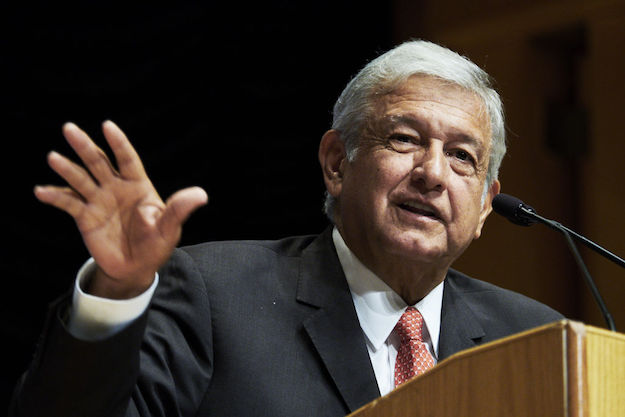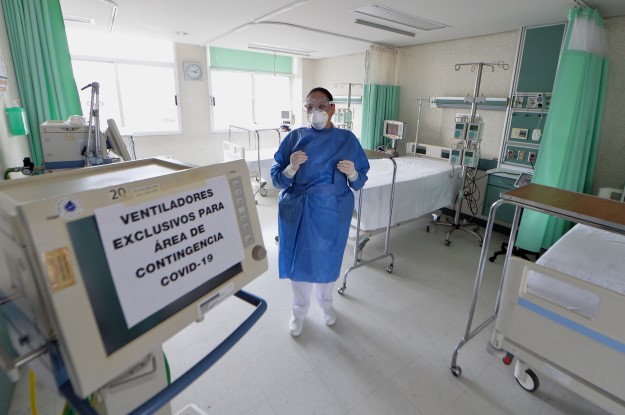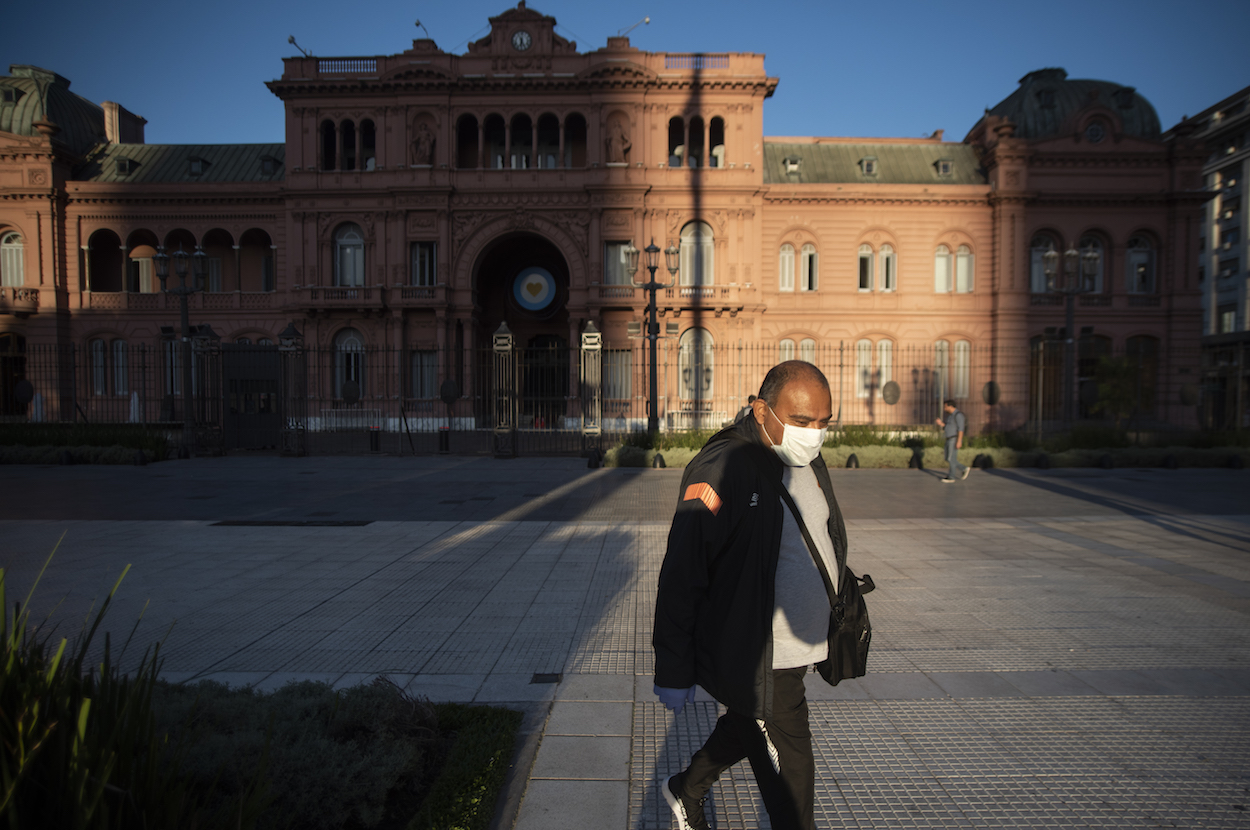Over the next 12 months, almost two in three Latin Americans will go to the polls to choose a new president. National elections will take place in Latin America’s heavyweights, Brazil and Mexico, and also in Colombia, Costa Rica, and Paraguay – not counting Venezuela’s apparent electoral fraud-in-waiting.
This electoral supercycle comes amid a significant – and historically unusual – leadership vacuum in the region. The United States is increasingly unpopular in its erstwhile sphere of influence, its comparatively weak footing in the Americas attributable to long-term trends as well as the Trump Administration’s missteps, from trade to immigration to loose threats of military intervention.
What’s surprising, though, is that no other country is even attempting to fill the void.
Brazil, crippled by recession and a profound political crisis, has turned inward and curtailed its international ambitions. Mexico, consumed by corruption and violence, has an upopular president and a foreign policy establishment preoccupied with mitigating the impact of Donald Trump’s presidency on NAFTA and immigration. Venezuela’s economy has all but collapsed, rendering the late Hugo Chávez’s diplomatic coalition a skeleton – although the divisions it sowed continue to occasionally paralyze regional diplomacy. The departing presidents of Colombia and Chile, highly regarded abroad, have been hamstrung by unpopularity back home. China has increased its hemispheric influence, but has thus far used its sway to advance primarily economic aims rather than political ones.
The overwhelming sense is that the Americas at present are experiencing a geopolitical lull – free from major battles for regional influence, perhaps, but also devoid of any vision grand enough to unite all or significant part of the Americas.
This is hardly the worst scenario. A hemisphere free of major fissures is undoubtedly preferable. The waning of Venezuela’s ideological coalition is a good thing for democracy in the region. Many countries in South America have converging visions of economic integration, at least for the moment. And all major countries in the region are in general agreement on the severity of – if not the response to – the democratic and humanitarian crisis in Venezuela. Lack of conflict is positive, even if it is accompanied by a lack of ambition.
The question is whether this is a lasting new reality: an Americas devoid of nations with the will, much less the capacity, to project power and influence beyond their own borders.
The coming elections may determine the answer. One or more of the leaders elected this year – particularly in Brazil and/or Mexico – may have ambitions of regional stature and the political platform to set a new tone for the region. If nothing else, they will shake up the moribund and frequently inconsequential tableau of regional diplomacy. And while greater tension is not inevitable, increased regional volatility can be expected in the coming years.
In Mexico, the populist crusader Andrés Manuel López Obrador (known by his initials, AMLO) currently leads the polls in all scenarios. Mexico has no runoff, so in a crowded field he could conceivably win with even 30 percent of the vote. If López Obrador wins, he will do so at least in part by channeling Mexican nationalism and anti-Trump sentiment. His politics, which lean closer to classical Latin American leftism, could prompt confrontations with the United States’ agenda on issues such as security, migration and the crisis in Venezuela, while potentially ending any prospect of salvaging NAFTA.
In Brazil, the two leading candidates are the center-left former president Luiz Inácio Lula da Silva, whose greatest obstacle to winning re-election is a corruption conviction which could disqualify him, and Jair Bolsonaro, a far-right federal congressman in the mold of the Philippines’ Rodrigo Duterte. Running on a hardline and militant approach to crime, Bolsonaro has a long history of racist, misogynist and homophobic remarks. His critics accuse him of being an apologist for torture and the country’s military dictatorship. A runoff between the two is possible.
If Lula were to return to power, he might seek to revive his ambitious vision for Brazilian regional and global influence, albeit with diminished economic muscle and a tarnished reputation. In turn, he could be tempted to exploit Trump’s unpopularity to enhance his own stature. Bolsonaro, on the other hand, is a Trump fan – “(He) faced the same attacks I am facing, that he was a homophobe, a fascist, a racist, a Nazi,” he once quipped, “I was rooting for him.” An imagined Trump-Bolsonaro axis could become a two-headed pariah, injecting new polarization into inter-American relations and weakening hemispheric cooperation on issues such as Venezuela and human rights. Even if a moderate candidate wins, Brazilian foreign policy may – as some analysts have noted – be revived thanks to a growing economy and a stabilizing political situation.
If Latin America’s newly elected leaders lack the inspiration (or capacity) to fill the region’s leadership void, external powers might see an opening to step up their own involvement – particularly with the U.S. disengaged and unpopular. China may be the obvious candidate for such a play.
China is no stranger to Latin America. Its trade with the region has multiplied 22 times since 2000, and governments in Latin America received over $21 billion in financing from Chinese policy banks in 2016 alone. China’s growing footprint in the region has been driven overwhelmingly by economic interests, but diplomats have nonetheless observed shifting postures from Latin American governments on issues important to Beijing, such as territorial disputes in the Pacific. China has also been a crucial lender of last resort to the increasingly tyrannical regime of Nicolás Maduro in Venezuela. As President Xi Jinping works to seize the mantle of global statesmanship and Latin America adjusts to an absentee Uncle Sam, China may see an opportunity to step up its pursuit of political and diplomatic influence in the region.
None of this is written. There are more benign scenarios where the doldrums last. A multilateral group of countries rooted in the so-called Lima Group of 13 Latin American and Caribbean governments plus Canada may partly fill the void through collective leadership on regional challenges such as Venezuela, especially if the political center holds in key elections. But such a scenario is hard to conceive in a future where the hemisphere’s three largest countries are led by Trump, Bolsonaro and López Obrador. That means that imminent storms should not – and cannot – be discounted.
—
Camilleri is the director of the Peter D. Bell Rule of Law Program at the Inter-American Dialogue, and a former advisor on Latin America at the State Department and National Security Council. Raderstorf is a program associate in the Peter D. Bell Program.








